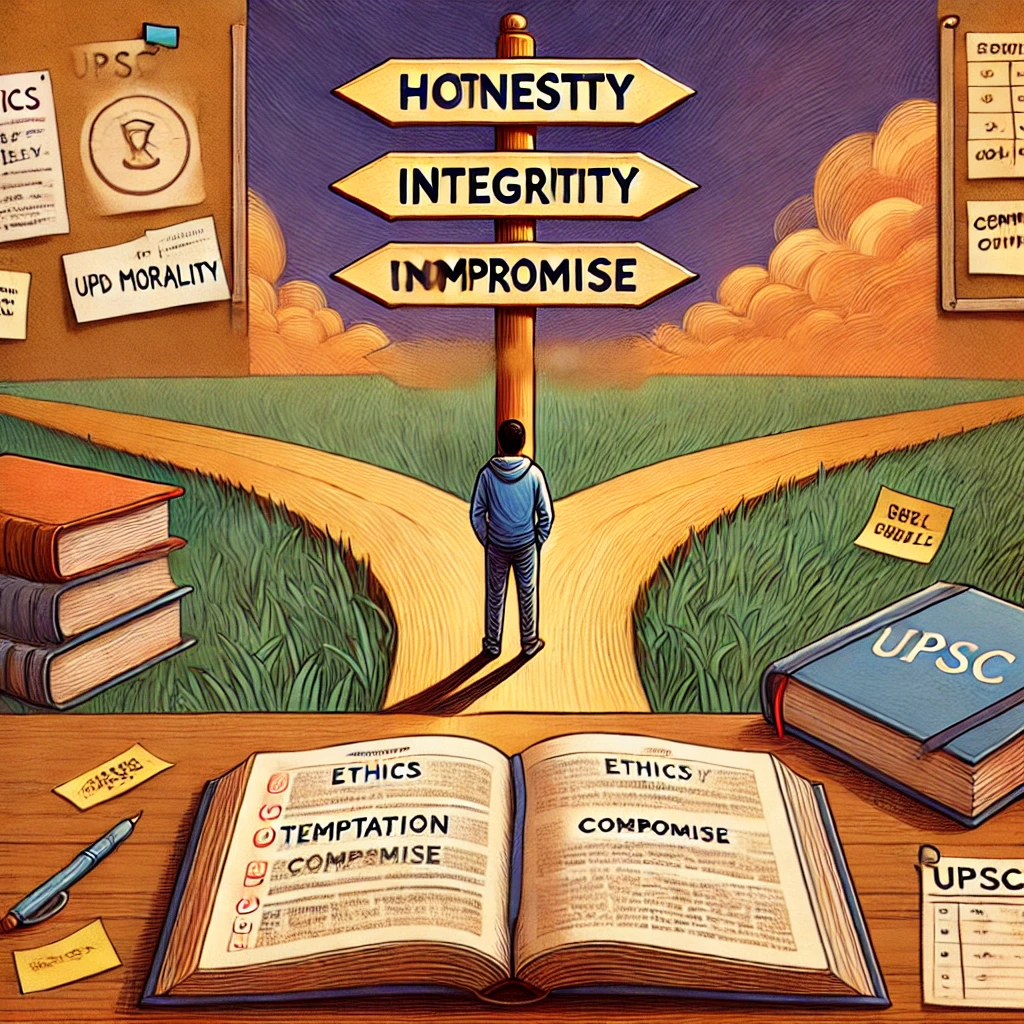UPSC Preparation: Nature of Moral Dilemmas
We have also seen from time to time the need for the study of the above components in administrative services. In today's article, we will turn to section 'B' of the paper.
In this article, we mainly reviewed what ethics is, various ethical frameworks, and the contributions made by Western thinkers to it. Along with this, we also considered alliances and behavior, emotional intelligence, and all this.
We have also seen from time to time the need for the study of the above elements in administrative services. In today's article, we will turn to section 'B' of the paper. This section is entirely devoted to case studies. How to write case studies effectively is a separate and in-depth discussion topic and we will study it in detail in the next few articles. First of all, while solving case studies, it is very important to be able to identify the ethical dilemmas in the given case. Today, we will study some ethical dilemmas.
Using public property for personal needs
This includes everything from using envelopes available in the office for personal correspondence to spending office money for personal gain.
Both unnecessary use of things that one does not own or use for personal purposes cannot be part of ethical conduct. Similarly, even if the economic loss or purpose of such use may be inappropriate in some situations, exercising rights over things that belong to others (the government) as if they were personal property is still unethical conduct.
To create a false impression
There is a subtle difference between lying and stating that something is wrong or untrue. In this situation, the behavior of a person is evaluated based on the issue of honesty. For example, you want to sell a car that was in an accident by repairing and painting it. When a potential customer asks about the condition of the car, you do not provide any information about the accident. Here you are telling a type of lie, which is to hide the true information and present false information as true. This type of behavior includes many other things like the ones mentioned above. For example, taking credit for the work of others, and helping others to get benefits for work that they did not do. In all these, along with lying, you are misleading the other person in a way.
Sitting quietly while immoral acts are committed
Here, misconduct means not publicly denouncing the unethical actions of others. If you saw your colleague embezzling lakhs of rupees, government money, would you report such an act to the concerned? If an official gives wrong information in a discussion or in a case, would you tell the decision-makers or the judiciary the real situation? Not taking any positive action against the unethical actions of others is fundamentally unethical. We see examples of such unethical acts everywhere in society. But this does not mean that these things are moral. For example, saying that other students do not complain about students who cheat in exams is a kind of tacit consent to such an act.
Violating the rules
Often, rules implemented in large organizations or government agencies are necessary to maintain internal control and promote democracy. However, following these rules can seem binding and oppressive to many. Also, for those in the organization who are obligated to answer to customers or the public, following these rules can seem like a waste of time.
In all these situations, even if the rules can be changed and improved, it is still part of the ethical conduct of employees to respect those rules. Until these rules are changed, employees are expected to follow them. A simple argument for rules feeling oppressive is that any good habits that involve the overall well-being of the individual always seem burdensome to us.


 firstiasofficial@gmail.com
firstiasofficial@gmail.com
Leave a Comment